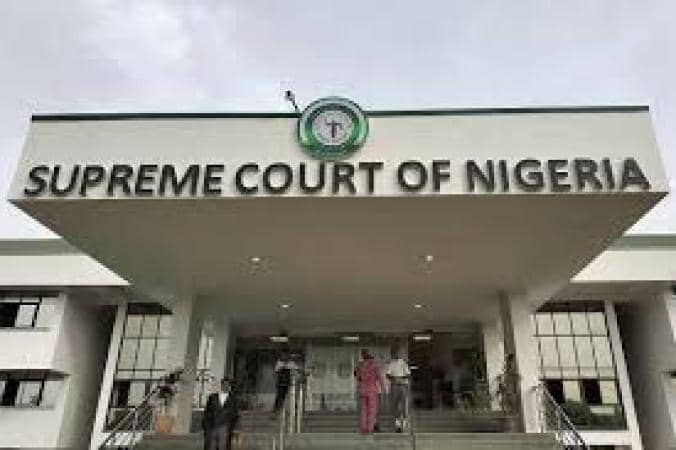Supreme Court upholds constitutionality of EFCC, NFIU, ICPC Acts
The Supreme Court of Nigeria has dismissed a suit brought by 16 states challenging the constitutionality of the Economic and Financial Crimes Commission (EFCC) and two other key anti-corruption agencies.
In a unanimous judgment delivered on Friday, the seven-member panel, led by Justice Uwani Abba-Aji, ruled that the suit was without merit.
The states, through their Attorneys-General, contested the establishment of the EFCC, the Independent Corrupt Practices and Other Related Offences Commission (ICPC), and the Nigerian Financial Intelligence Unit (NFIU).
They argued that these institutions were improperly created as they derived from international conventions that had not been fully ratified by the states’ Houses of Assembly, in accordance with Section 12 of the 1999 Constitution.
Justice Abba-Aji, however, clarified that the EFCC Act emanated from a convention rather than a treaty, thus exempting it from requiring state-level ratification.
“Conventions are agreements reached by a larger number of nations, and once ratified by member states and legislated by the National Assembly, they become binding on all states,” she explained.
READ ALSO: NJC suspends Rivers, Anambra High Court judges
The court emphasized that the National Assembly was well within its rights to establish anti-corruption laws, including the EFCC, ICPC, and NFIU, without the need for additional state approval.
Justice Abba-Aji further stated, “In a federated system like Nigeria, no state holds the power to make laws that compete with or override federal statutes enacted by the National Assembly.”
The justices unanimously ruled against all six issues presented by the plaintiffs, affirming the legal validity of the agencies in question and dismissing the suit.
The ruling also upheld the NFIU guidelines for managing state funds, asserting that such measures are binding and do not breach constitutional provisions.
Counsel for Kogi State’s Attorney-General, Abdulwahab Mohammed (SAN), acknowledged the significance of the decision, noting it would enrich legal discourse.
On the side of the Federal Government, Rotimi Oyedepo (SAN) expressed gratitude for the court’s stance, remarking, “Your lordships have permanently settled the legality of the anti-corruption agencies in their fight against corruption.”
Follow the Neptune Prime channel on WhatsApp:
Do you have breaking news, interview request, opinion, suggestion, or want your event covered? Email us at neptuneprime2233@gmail.com





